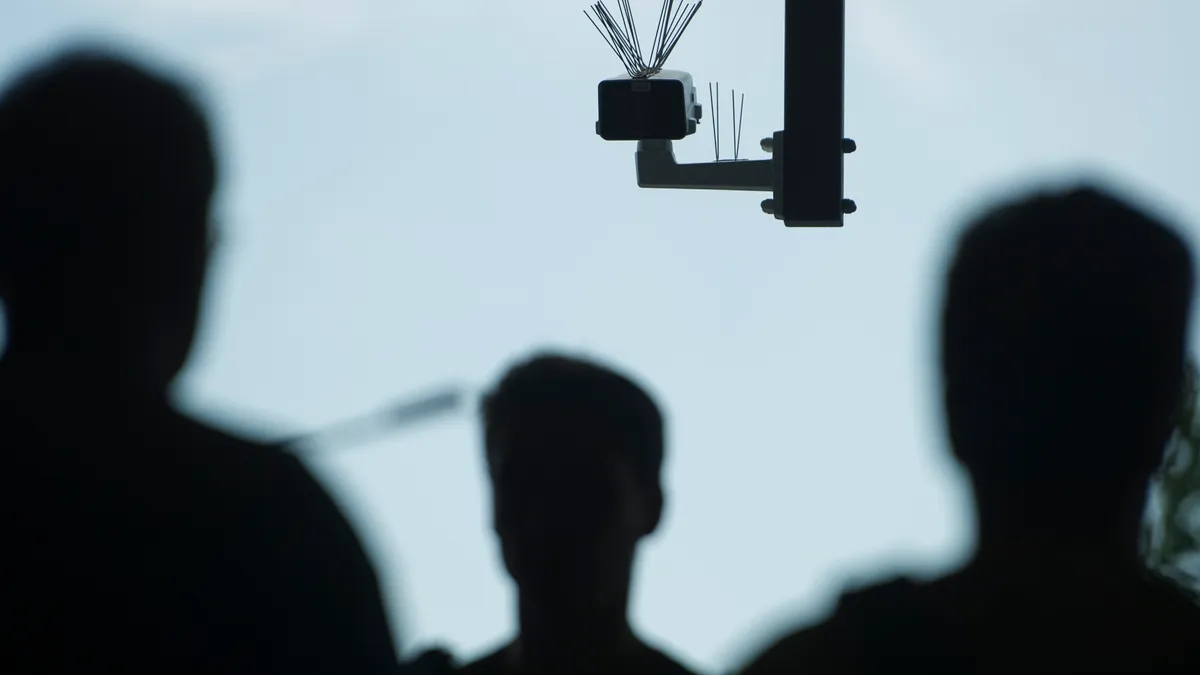Dive Brief:
- King County, Washington — home to 2.3 million people in and around Seattle — will not allow government acquisition and use of facial recognition software, including by the Sheriff's office, per an ordinance the county council unanimously approved last week.
- Although many cities across the U.S., including Boston, Minneapolis and New Orleans, have passed some form of bans largely limiting government use of the technology, King County says it's the first U.S. county to pass such a ban. The King County ban does not address private or commercial use of the technology like a 2020 Portland, Oregon, law did. It also includes an exception for potential use in cases involving missing children, to comply with the National Child Search Assistance Act.
- With the Seattle area being a home for tech giants and facial recognition software providers Amazon and Microsoft, the action to largely limit the category's applications is especially significant, said Brian Hofer, chair and executive director of Oakland, California-based Secure Justice, an organization that stands against government and corporate over-reach. "Symbolism does have real value ... it sends a message specifically to those companies marketing this technology that at least there in the county, a [significant] portion of the community does not want this technology to be used," Hofer said.
Dive Insight:
Facial recognition systems can in part analyze surveillance images to enable law enforcement or other actors to identify individuals. But despite the possible contributions of such capabilities in criminal investigations, the technology prompts invasion of privacy concerns and is shown to have misidentified people of color at a significant rate compared to White people. In a 2019 federal study from the National Institute of Standards and Technology, Asian and African-American faces were misidentified up to 100 times more often in some algorithms conducting one-to-one matching.
Minimal guardrails exist at the state or federal level, and local jurisdictions have increasingly taken matters into their own hands.
In King County, "The use of facial recognition technology by government agencies poses distinct threats to our residents, including potential misidentification, bias, and the erosion of our civil liberties," said Councilmember Jeanne Kohl-Welles, who sponsored the legislation, in a statement. "The use or misuse of these technologies has potentially devastating consequences which the new ordinance will help to prevent."
The decision drew support from U.S. Rep. Pramila Jayapal, who represents parts of Seattle and King County. "Facial recognition technology has been proven to misidentify people of color at higher rates — leading to unnecessary, traumatic, and expensive legal troubles for innocent Black and Brown people who were wrongfully accused and arrested," Jayapal wrote in a tweet.
Secure Justice's Hofer said the fact that the law happened at the greater county versus city level represents a win, but he is concerned by the missing children caveat because of the doors it could open to extend the technology's reach.
"They're going to have some success cases. Then they're going to say: 'what about missing elderly? what about victims of sexual assault? what about victims of violent crime?' So I am worried that the precedent that it sets [will lead] to an expansion of the technology," Hofer said.
The King County decision came about two weeks after Amazon said it would extend a moratorium on police use of its facial recognition software indefinitely. Amazon last June put in place a one-year moratorium.
Recognizing the debates happening in localities across the country, the National League of Cities (NLC) issued a report earlier this year with information regarding how cities might approach the use and regulation of facial recognition technology.
"[M]any cities across the country are wrestling with the decision on how they approach it. Especially in the absence of federal guidance, cities and counties are really left to regulate the use themselves," said Brooks Rainwater, senior executive of NLC's Center for City Solutions. "We're in support of cities looking at the scope of facial recognition and deciding whether this is a tool that should be used in their community, or on the flip side whether or not it should be banned from either municipal use or all uses within that city." NLC does not take its own stance on whether or not a city ought to employ the technology.
King County's limitations on the technology, like most other localities that have taken action, does not cover private use of the technology. On the opposite coast, Baltimore is now considering a ban similar to Portland, Oregon's that could prohibit private use. The Security Industry Association, which counts Microsoft among its members, is speaking out against the scope Baltimore is proposing.
The debate has also elevated to the state level. Massachusetts passed a series of statewide restrictions in May on how police can and cannot use the technology in criminal investigations, and a bill is currently moving through Maine's state legislature that would limit the technology's use by state and local law enforcement.
Federal action may be on the horizon as well.
Sen. Jeff Merkley, D-Ore., last year helped introduce multiple pieces of legislation that would respectively establish a moratorium on the federal government's use of the technology until Congress outlines specific uses for the data; rescind federal support from state and local law enforcement entities using biometric technology; and prohibit private companies from "harvesting or profiting from" customer or employee biometric data without permission.
Merkley has plans to reintroduce the Facial Recognition and Biometric Technology Moratorium Act, which was brought forth last June but did not make it to a vote, Morning Brew reported on Friday.












